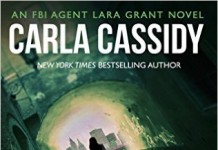 James Murdoch, son of Rupert Murdoch and Chairman and Chief Executive of News Corporation, Europe and Asia, recently spoke at the Stationers Guild as part of its year-long commemoration of the 300th anniversary of the Statue of Anne, the first real copyright law. The full text of the speech has been posted to copyright-debate.co.uk.
James Murdoch, son of Rupert Murdoch and Chairman and Chief Executive of News Corporation, Europe and Asia, recently spoke at the Stationers Guild as part of its year-long commemoration of the 300th anniversary of the Statue of Anne, the first real copyright law. The full text of the speech has been posted to copyright-debate.co.uk.
The purpose of the speech was to draw parallels between the 18th century and the 21st century copyright landscape. Murdoch compared the “low-cost copying and distribution” (relative to what had come before) afforded by the printing press in 1710 and the same relative cheapness of Internet distribution in the present day to point out that the purpose of copyright laws remains unchanged.
He trotted out the old dead-horse canard of information wanting to be free (that never actually seems to be used anymore except, paradoxically, by people who want information to be expensive), and then—naturally—tied it into News Corp’s paywalls on the London Times and Sunday Times.
Only a few months ago, we launched a little revolution in the newspaper business: we stopped giving away our journalism for free online and started asking readers to pay a fair price for The Times and Sunday Times, whether they’re reading it in print or on screen. And guess what – for the first time in 225 years we are selling copies of the Times on something other than paper – we’ve racked up over 100,000 sales of our digital editions. Readership of The Times is now growing. And just last week, Eureka, the science and environment magazine of the Times, became the No.1 paid app on iTunes in the UK.
Of course, Murdoch didn’t talk about the negative effects that the newspaper paywall has had. We noted in September that publicists and advertisers were becoming increasingly reluctant to have anything to do with the paywalled London Times because it was not being disseminated widely the way other news sources were.
And couple of days ago, Techdirt reported that the Times broke an important inside story on UK politics—that somehow went unnoticed by the wider world until nine days later when a blog re-“broke” the story (and got all the credit for it).
But back in Murdoch’s speech, he wound up talking about the widespread illegal downloads and web streaming of copyrighted content that allegedly makes up over half of all Internet traffic, and taking a veiled poke at Google (with which Rupert Murdoch has had a number of disagreements) and other search providers:
As I said earlier, many companies have built businesses on the ability to search, index, and distribute copyrighted material without paying a fair price to those who have created that material in the first place.
He concludes by calling for action, saying that we should “find new ways of managing copyright that go with the grain of technology” instead of trying to maintain the status quo. He does not say what any of those might be (apart from the earlier example of News Corp’s paywalls, of course).
Copyright in the digital era is a complicated issue, and nobody has all the answers yet—not Murdoch’s News Corp or the Pirate Party. Only one thing is certain: it is going to be hotly debated for years to come, and probably for the remainder of recorded history.

































I’m sure Anne looks regal in the statue of her. I suppose the point of the statue is to honor the law copyright law created during her reign, the STATUTE of Anne. Also, we really could use more statues to honor the Missing and Fallen Proofreaders.
As if evidence of the necessity of proofreaders wasn’t already abundant, notice the “law copyright law” error in my comment above! Of course, comments from the public (pre- morning coffee) aren’t expected to rise to the professional standards of published news items. Still, mea culpa.